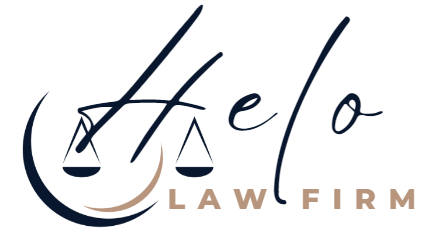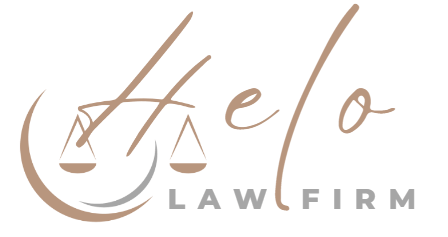Did you recently suffer an injury due to someone else’s negligence? Whether it was a slip and fall accident or a car collision, personal injury cases can be overwhelming. It’s crucial to understand your rights as well as the strategies that can help maximize your claim. In this blog post, we’ll guide you through some of the most effective methods in personal injury law so that you can get the compensation you deserve. Let’s dive in!
Introduction to Personal Injury Law
If you’ve been injured due to someone else’s negligence, you may be wondering what your next steps are. How do you know if you have a personal injury claim? How much is your claim worth? How do you ensure that you receive the maximum possible compensation for your injuries?
These are all valid questions that can be difficult to answer without the help of an experienced personal injury lawyer. While every case is different, there are some general strategies that can help maximize your personal injury settlement.
- Know the Types of Personal Injury Claims
There are three main types of personal injury claims: negligence, intentional wrongs, and strict liability. Most personal injury claims will fall under negligence, which means that the defendant (the person or company you’re suing) did not act with the level of care that a reasonable person would under similar circumstances. To win a negligence claim, you must prove that the defendant owed you a duty of care, breached that duty, and caused your injuries as a result. - Proving Damages in a Personal Injury Claim
In order to receive compensation for your injuries, you must be able to prove both economic and non-economic damages. Economic damages are costs like medical bills or lost wages; they have a specific monetary value attached to them. Non-economic damages include pain and suffering or emotional distress; these are more difficult to quantify but no less real. An experienced personal injury lawyer will help build your case by collecting evidence of both economic
Types of Damages Available in a Personal Injury Claim
There are many types of damages that may be available to you if you have been injured in an accident. The type of damages you may be able to recover will depend on the specific facts of your case. Some of the most common types of damages that may be awarded in a personal injury claim include:
Medical expenses: You may be able to recover the cost of any medical treatment you needed as a result of your injuries, including hospitalization, surgery, and rehabilitation.
Lost wages: If you were unable to work because of your injuries, you may be able to recover the wages you lost during that time.
Pain and suffering: You may be able to recover compensation for the physical pain and emotional suffering caused by your injuries.
Property damage: If your personal property was damaged in the accident, you may be able to recover the cost of repairs or replacement.
If you have been injured in an accident, it is important to consult with an experienced personal injury attorney who can evaluate your claim and help you pursue the full amount of compensation you are entitled to.
How to Gather Evidence in a Personal Injury Case
After you’ve been injured in an accident, you may be wondering how to best gather evidence to support your claim. Here are some tips:
- Take photographs of the scene of the accident, as well as any injuries you sustained. These can be helpful in backing up your account of what happened.
- Get the contact information of any witnesses who saw the accident occur. They can provide valuable testimony to support your claim.
- If there is any video footage of the accident (e.g., from a security camera or a nearby business), be sure to get a copy of it. This can be very persuasive evidence.
- Keep track of all medical treatment you receive for your injuries, including doctors’ visits, hospital stays, medications, etc. This will help show the severity of your injuries and the need for compensation.
- Keep a record of any lost wages or other financial damages you incur as a result of the accident
Strategies for Negotiating a Settlement or Taking Your Case to Court
There are two general approaches to resolving a personal injury claim: negotiation and litigation. The vast majority of personal injury claims are resolved through negotiation, usually in the form of settlement between the claimant and the defendant (or the defendant’s insurer). However, some cases do go to court, either because settlement negotiations break down or because the claimant believes that their case has sufficient merit to warrant going to trial.
When it comes to negotiating a settlement, there are a few key strategies that can help you get the best possible outcome. First, it’s important to have a clear idea of what your goals are and what you’re willing to accept. You should also be prepared to compromise – remember that the goal is to reach an agreement that is fair to both sides, not necessarily one that is exactly what you want. It can be helpful to work with a personal injury lawyer who can advise you on what a fair settlement would be based on the facts of your case.
If you do end up going to court, there are a few things to keep in mind. First, it’s important to remember that winning at trial is never guaranteed – even if you have strong evidence and witnesses on your side. Second, litigation can be expensive and time-consuming, so it’s important to weigh the costs and benefits before deciding whether or not it’s worth pursuing. If you do win your case, the amount of damages you.

Limitations on Damages in Personal Injury Claims
Personal injury law can be complex, and it is important to understand the limits on damages that may be recovered in a personal injury claim. In general, there are three main types of damages that may be recovered in a personal injury claim: economic damages, non-economic damages, and punitive damages.
Economic damages are intended to compensate the injured party for their financial losses. These may include medical expenses, lost wages, and property damage. Non-economic damages are intended to compensate the injured party for their pain and suffering, emotional distress, loss of enjoyment of life, and other intangible losses. Punitive damages are intended to punish the wrongdoer and deter future misconduct.
There are several limitations on the amount of damages that may be recovered in a personal injury claim. First, many states have enacted laws that place a cap on the amount of non-economic damages that may be awarded in a personal injury claim. Second, courts will often limit the amount of punitive damages that may be awarded based on the severity of the underlying injuries. Many insurance policies contain provisions limiting the amount of compensation that may be paid out for personal injury claims.
It is important to consult with an experienced personal injury attorney to determine what limits may apply to your particular claim. An attorney can help you navigate the complex legal landscape and maximize your chances of recovering the full extent of your damages.
Potential Pitfalls When Filing a Personal Injury Claim
There are many potential pitfalls when filing a personal injury claim. One of the biggest is not knowing the value of your claim. If you do not know how much your damages are worth, you could end up settling for far less than you deserve. Another common pitfall is not being prepared to negotiate with insurance companies. Insurance adjusters are trained to low-ball settlements, so it is important to be prepared with counteroffers.
Other potential pitfalls include:
- Not having adequate documentation of your injuries and expenses
- Not understanding the statute of limitations in your state
- Not keeping detailed records of all correspondence with insurance companies and medical providers
- Hiring an inexperienced or unqualified personal injury attorney
How an Attorney Can Help With Your Claim
There are many ways an experienced personal injury attorney can help you after you’ve been injured in an accident.
- Help you understand the personal injury claims process, including all deadlines that must be met
- Gather evidence to support your claim
•Interview witnesses - Manage correspondence and negotiation with the at-fault party’s insurance company
- Fight for a fair settlement of your claim
- Take your case to trial if necessary
Personal Injury Conclusion
As you can see, there is a lot of strategy involved in maximizing the outcome of your personal injury claim. It’s important to remember that these matters are generally complex, so it’s wise to work with an experienced attorney who understands all of the laws related to personal injury claims. An attorney can help you understand what evidence needs to be collected and how best to present it in order for you to get the maximum amount possible from your settlement or trial award. With their guidance and expertise, you will have access to all of your legal options and the chance at getting fair compensation for your injuries.


